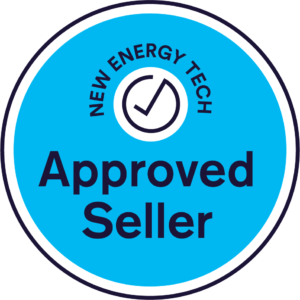Intro to Batteries
Save Your Sunshine
What Is A Solar Battery?
A solar battery is a power storing device that can be charged by the energy your solar panels generate. This energy is saved for later use during times your solar system is not producing enough energy to power your needs. This is common during low sunlight times such as early mornings and evenings. A solar battery can also power your home in times of power outages if it is set up with backup functionality.
Depending on your individual circumstances and power usage, more often than not you will find your solar system will produce more power than you are using. Without a battery storage device, this excess power will get fed or sold back to the grid. You might think this is a great idea but remember that your electricity provider will almost always sell the power back to you at a much higher rate than what you sold it for.
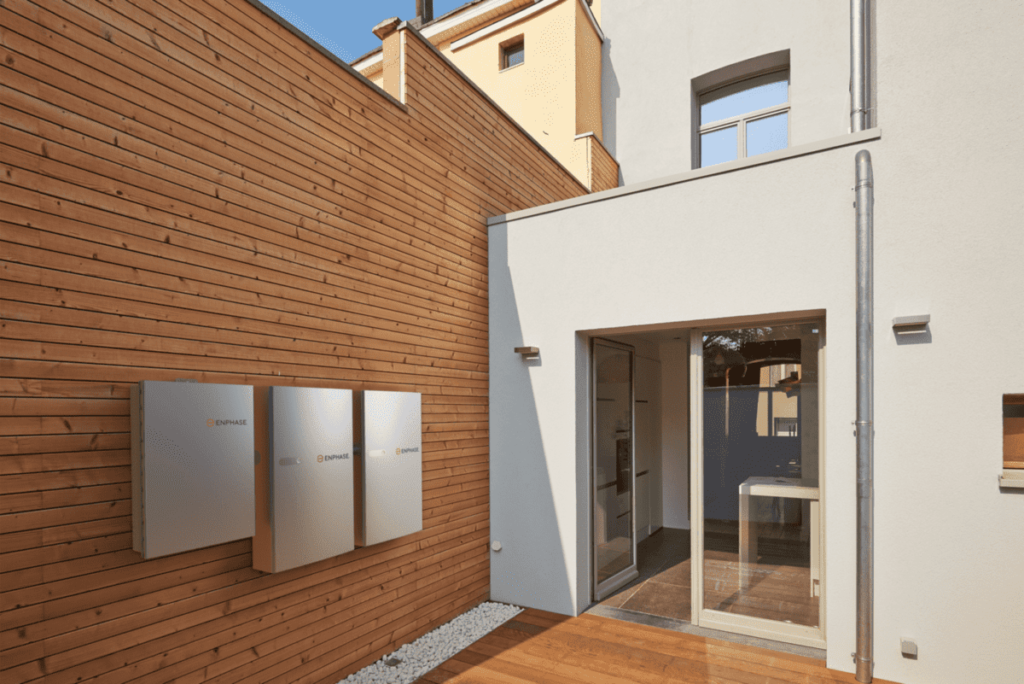
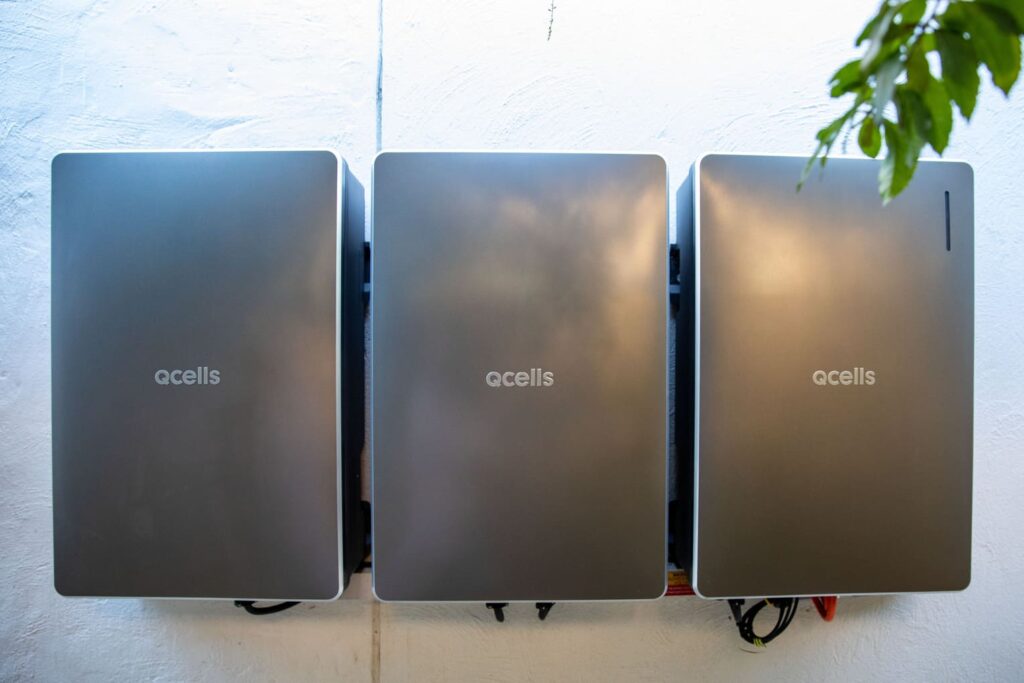
With a battery storage system in place, rather than selling your excess power back to the grid, it will get stored in your battery for use whenever you need it during periods of low light conditions. This reduces your dependency on the grid making the battery storage option a more cost-effective solution in the long term. The only time you will need to draw power from the grid is when your battery is depleted.
Most solar batteries on the market are lithium-ion batteries similar to your smart phones and computers. They are composed of a lithium compound and different manufacturers will choose different compounds based on supply chain availability, environmental and humanitarian reasons.
How Does A Solar Battery Work?
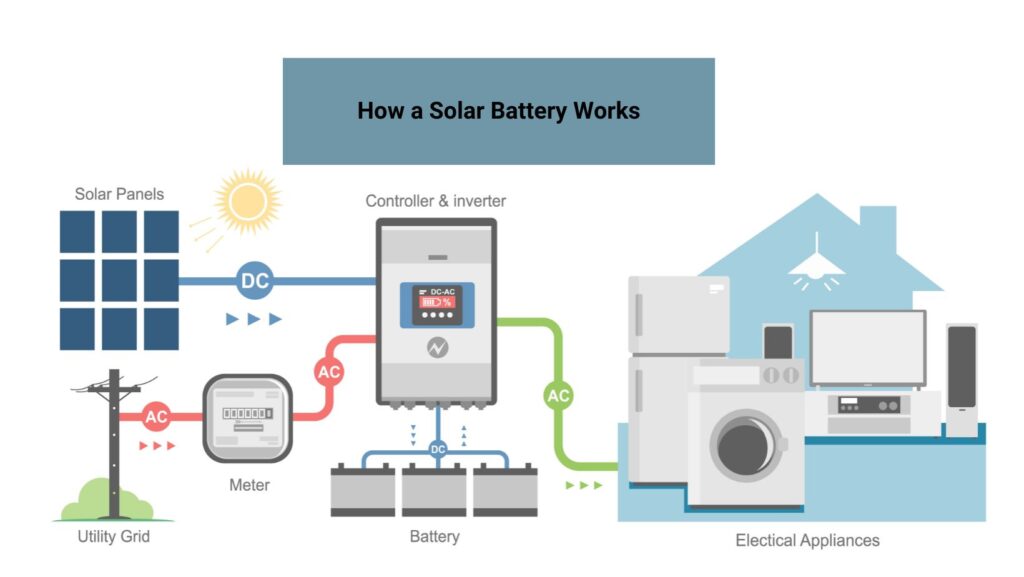
The energy your solar system draws from the sun via the solar panels is called the DC (Direct Current) power. By way of a device called an inverter, the DC power is converted to AC (Alternating Current) power. The AC power is what is required to run electrical appliances in your home or office. The AC power gets stored in your batteries for later use. The higher your battery’s capacity, the more solar energy it can store.
What Types Of Batteries Are Available?
There are 2 main types of batteries, AC-coupled and Hybrid DC-coupled batteries. Batteries that have their own inverter which mean they can convert the DC electricity from the solar panels to AC electricity without the need of additional components. These batteries are called AC batteries.
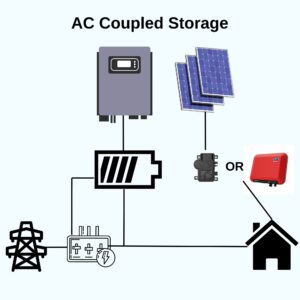
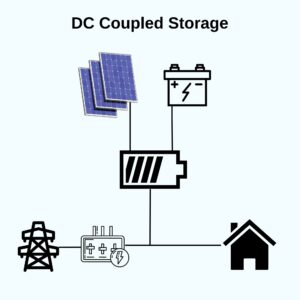
The latest technology has seen hybrid DC-coupled battery systems being made available on the market which can be described as an all in one battery unit. These storage systems in some cases can eliminate the need for a typical solar inverter altogether.
To know which one will work best in your home, we recommend you consult with a solar professional who will be able to present you with the best options for your specific circumstances.
What To Look Out For When Purchasing A Battery?
It’s important to speak to a solar professional who can help you find the right solar battery for your solar system and energy needs. There are a number of important factors to consider.
Firstly, the size of your battery. The total amount of electricity a solar battery can store is called capacity and measured in kilowatt-hours (kWh). More capacity means more storage. The amount of electricity the battery can deliver at one time is measured in kilowatts (kW).
Ideally, the size of your battery would match your energy needs and use, your solar system’s output, your energy goals and your budget. Another factor in sizing your battery is the Depth of Discharge (DoD). Due to their chemical composition, most batteries need to retain some charge at all times, this is called the DoD and is measured in a percentage relative to the overall capacity of the battery.
Once you have decided on your battery size, it’s time to settle on a brand. We recommend choosing batteries from only reputable manufacturers so you get a high-quality and reliable product with a long-lasting warranty to ensure your battery investment is safe for the majority of your battery’s life. Once you have decided on your battery size, it’s time to settle on a brand. We recommend choosing batteries from only reputable manufacturers so you get a high-quality and reliable product with a long-lasting warranty to ensure your battery investment is safe for the majority of your battery’s life.
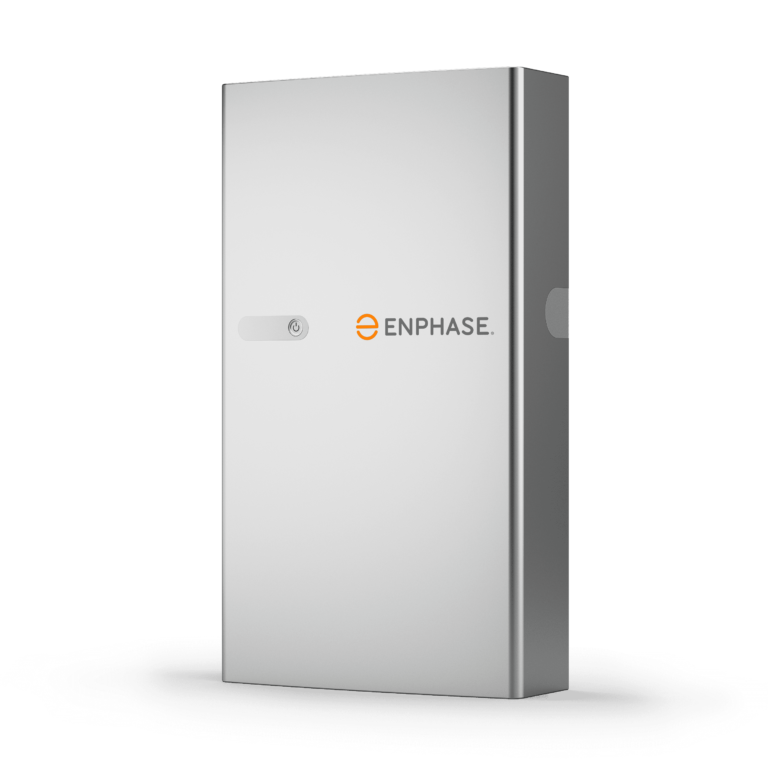
Lastly and most importantly, make sure you choose a Clean Energy Council Accredited Battery Designer and Installer to design and install your battery system. Solar battery systems currently do not attract government incentives such as the ability to create Solar Technology Certificates (STCs) but should nevertheless only be designed and installed by solar professionals who are CEC accredited in battery design and install.
Moreover, we recommend you purchase only from New Energy Tech Approved Sellers to make sure you are protected when it comes to customer guarantees. We at Sydney Air & Solar tick all these boxes and are more than happy to help you on your solar battery journey by giving you honest expert advice.
